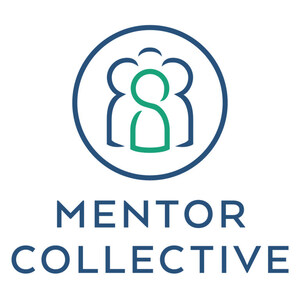
Mentor Collective's "EdTech for Equity" White Paper Highlights Increased Student Retention & Sense of Belonging for Postsecondary Partner Institutions Working to Bridge Equity Gaps
BOSTON, Dec. 6, 2022 /PRNewswire/ -- Mentor Collective, the preferred partner of large-scale peer and alumni mentorship programs and Lumina Foundation Impact Investment, has released a white paper demonstrating the efficacy and impact of peer mentorship at scale. EdTech for Equity: Scaling Peer Mentorship to Close Postsecondary Equity Gaps features five member institutions of the American Talent Initiative and Aspen Institute's College Excellence Program Transfer Intensive; all which have implemented Mentor Collective's platform to advance an identity-conscious student success agenda. Key results in the paper include increased sense of belonging, use of campus resources, and gains in Spring-Fall term-to-term persistence between 2-16% for student mentees. Download the full white paper.
"92 percent of higher education institutions fail to enroll and graduate students from historically marginalized communities at equitable rates to the general population," said Jackson Boyar, Co-founder and CEO of Mentor Collective. "We hope that by consistently sharing our results with the higher education community, that we are able to show how mentorship can align the business of postsecondary education with the business of being a student."
EdTech for Equity refocuses the student success conversation on innovations in technology that, when combined with student success best practices, can impact thousands of students and surface actionable insights on campus climate and student wellness.
University of California Riverside
Institutional analysis showed that both freshman and transfer retention increased as a result of the Campus Collective program; with freshman retention 2.1 percent higher than non-participants and transfer student retention 5 percent higher.
Saddleback College
The college's institutional research team ran an internal propensity analysis by designing a non-mentored control group matched to the demographic data of the Mentor Collective program. The results showed that the mentored group persisted at a rate higher than the control. Disaggregated by ethnicity and first-generation status, equity gaps disappeared.
University of North Carolina, Greensboro
The Transfer2Transfer peer mentorship program helps over a third of incoming transfer students and has increased sense of belonging for mentees by at least 9 percent each year since the program's launch in 2020.
Bucknell University
The university's Retention Task Force noticed first-generation students experienced the greatest benefit of peer mentorship. First-gen participants reported more conversations than non-first-gen program participants and performed better academically than first-gen non-participants.
University of Wisconsin, Madison
Among admitted students who engaged with a mentor, 69 percent indicated their intent to enroll, compared to 17 percent of those who did not engage with a mentor.
To learn more, download the paper and visit the Mentor Collective results page for additional case studies and research.
About Mentor Collective
Mentor Collective—the leading provider of high-impact, large-scale mentorship programming in higher education—is a collective of institutions and thought leaders dedicated to closing the opportunity gap through mentorship. Founded in 2014, Mentor Collective has delivered 800+ unique mentorship programs, established 180+ institutional partnerships, and formed over 250,000 mentoring relationships through expert-led research, services, and technology. As an impact-first investment of the Lumina Foundation, Mentor Collective partners with forward-thinking institutions that are committed to equity, inclusion, and relationship-centered education.
SOURCE Mentor Collective







Share this article